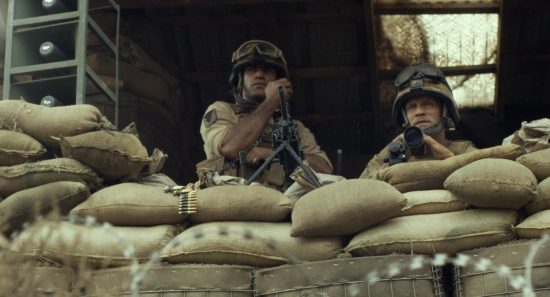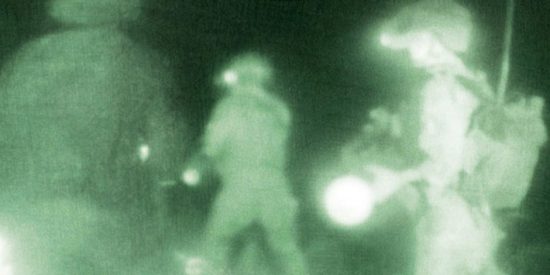Review: The Wakhan Front- “A psychological-thriller you should watch.”
Although the film’s English name is “The Wakhan Front”, its original name, “Ni Le Ciel Ni La Terre” translates to “Neither Heaven Nor Earth”. Directed by Clèment Cogitore, Ni Le Ciel Ni La Terre (2015) is one of France’s most underrated films to come out of the Cannes Film Festival in recent years. Despite winning only 3 of 12 nominations in Cannes and other film awards in France, as well as its low exposure to the mainstream audiences, this film shows French cinema at its finest, an industry that consistently delivers films of tremendous depth which never cease to amaze me.
A small section of soldiers under Captain Antarès’ (Jérémie Rennier) lead are on a surveillance mission in Wakhan, deep in the mountains of Afghanistan, near the border with Pakistan. According to the soldiers, not much fighting is expected to take place so long as they stay within their side of the valley and don’t go into the Taliban’s side. Though there seems to be an agreement of peace and open communication between the base camp and the nearby villagers, troops start disappearing mysteriously and inexplicably during the night. Whilst all suspicions should therefore fall on the Taliban, the Taliban are facing the same problem themselves.
In my opinion, “The Wakhan Front” is a bad translation of the original name, which seems to be a prevalent issue when international films are displayed on other markets. The name makes it sound more like a war film, when actually, it is a very complex psychological thriller. On the other hand, its original name gives us a hint of the disturbing themes of both faith and the paranormal treated during the film. The exact nature of the mission Antarès and his soldiers have been set out to do is never fully explained, as it is practically irrelevant in the film’s progression- the film focuses on the soldiers and their psyche, particularly that of Captain Antarès, who feels responsible for whatever happens to his section. As fear starts to overtake them when their fellow troops start disappearing overnight, even when there is another soldier inside the bunker with them, they start to question their integrity and their sanity. Their fear is almost palpable to the audience, contagious. Because the film’s narrative follows only the point of view of the soldiers, the audience doesn’t know anything that the characters don’t know too. This is a clever tactic which gets us even more involved in the drama, to make us empathize with the soldiers’ distress. It makes us feel uneasy, paranoid, the same paranoia that drives the soldiers to perform a thorough explosives check even when all they see is an old, rusty metal road in the valley.
While a point could be argued that the film is experimental, the treatment it is given is purely realist. Creating an atmosphere of hostility, isolation and perpetual danger, falls on the shoulders of cinematographer Sylvain Verdet. His spectacular establishing shots of the valley, the point-of-view and over the shoulder shots of the soldiers in the bunkers where they overlook the valley, and an excellent use of handheld camerawork (including night vision goggles and heat sensors) make the film a visual achievement in itself. It also shows the influence of critically acclaimed thrillers such as “The Blair Witch Project” (1999) which also focused on creating a thriller about potentially paranormal happenings in the most realistic way possible. Apart from a few short scenes, the film uses virtually no soundtrack, which has become somewhat of a signature of French cinema. As opposed to Hollywood’s obsession with using cheesy and melodramatic music to manipulate their audience’s emotions, Cogitore uses silence as a tool as powerful as music, and masterfully employs natural sounds such as the wind, to create a haunting melody when the soldiers are alone at night.
It’s certainly an impressive feature film debut for Clèment Cogitore, as well as a remarkable showing from Belgian actor Jérémie Renier, who shows his experience and his ability to take on a film’s lead role with authority and class (a performance that garnered him nominations for Best Actor in various film festivals). If I hadn’t stumbled upon this film at the Lima Film Festival this year, I probably would have never heard of it, but now I can’t recommend it enough. Albeit the film’s third act is significantly weaker than the first two, where its slow pace starts wearing the audience down and it seems as if screenwriters Thomas Bidegain and Cogitore lost their grip on the film’s delicately woven suspense, the film makes up for it with a powerful and thought provoking ending that leaves many questions unanswered, but provides a surprisingly satisfying closure to the narrative.












I’ll look for the film in Netflix. Deep and interesting analysis as always Daniel.